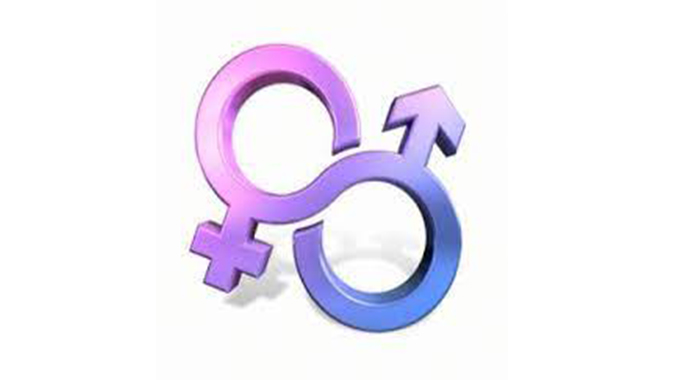Mainstreaming gender in taxation for sustainable development

Andile Tshuma, Gender
ACHIEVING gender equality has been seen to have some positive socio-economic implications as women’s empowerment has a catalytic impact on economies as it drives productivity and growth.
The gender equality conversation has moved from being a human rights only talk, but has levelled up to consider the socioeconomic and socio-political advantages of an equal society.
It is important to locate gender in the management of public resources.
Tax is the most sustainable source of funding for public services.
Since taxation is the lifeblood of national development around the world, the discourse on gender equality and taxation has also recently become louder. As a result, key issues in the development policy debate on public finance, development finance and the debate on Governments’ responsibility to their citizens have been measured by how they speak to gender interests.
One of the ways to measure gender mainstreaming in taxation is to look at the public services available in a country.
Sometimes, public services leave a lot to be desired as they are not gender responsive or sensitive and they often do not accommodate the needs of marginalised groups in society such as the elderly and people with disabilities.
Some of the reasons often given on why services are below satisfactory standards have to do with lack of funding, yet these people who are not getting the public services they deserve are also taxpayers.
While there have been calls for gender sensitive budgets, with many local authorities in the country having heeded the call and started taking action, actual services are still insensitive to the needs of women and girls, showing that gender inequality continues to limit access to these services for women and girls in the country, particularly in rural communities.
It is important for people to understand the importance and value of taxes and paying taxes faithfully because when people know that the taxes fund the services they consume, then they will play their part in transacting honestly and not evading tax.
Mainstreaming gender in taxation for sustainable development can be understood by looking at the backdrop of the gender equality for sustainable development conversation.
Sustainable Development Goal (SDG) 5 speaks to gender equality and equal socioeconomic opportunities are mentioned in this section, which also talks about growth with equity to ensure that women are supported to catch up and be at the same level with their male counterparts.
There have been various global developments in relation to gender equality since the early 1970s. Notable ones included the adoption by the United Nations General Assembly in 1979 of the United Nations Convention on the Elimination of All Forms of Discrimination against Women (Cedaw) and the Beijing Platform for Action in 1995.
In 2015 we had the UN Sustainable Development Goals (2015) as part of the 2030 Agenda for Sustainable Development, which set gender equality as an independent goal and is anchored in SDG 5 and includes all 17 SDGs, the 45 goals and 54 indicators Gender equality.
This was further underpinned in the African Union’s Agenda 63, Goal No 17, in May 2013, in which Goal No 6 reads:
“An Africa whose development is driven by people that draws on the potential of Africans, in particular of their women and young people, supports and cares for them children”.
In particular, one of the priority areas in this regard is the economic empowerment of women and girls.
It is widely recognised that domestic resource mobilisation, and taxation in particular, is an important tool for developing countries to ensure sustainable funding of their poverty reduction and growth strategies.
However, when services are poor, there is little that can motivate people to pay tax and to transact in formal markets where they will be taxed.
This therefore, calls for gender mainstreaming and gender responsive public services that are democratic, publicly funded, publicly delivered and universal.
For Zimbabwe and the rest of its African counterparts, there are a number of benefits to be gained from gender inclusion or the participation of women in tax issues on economic development.
Taxation has historically remained a male-dominated industry, which has been confirmed by the existing literature, calling for a shift towards a gender equality perspective.
According to the African Tax Administration Forum (ATAF), this makes an increased interest in taxes in developing countries more critical, especially when it is accompanied by an interest in the gender impact of tax systems.
The importance of gender equality and taxation, viewed individually, has been widely recognised but is rarely discussed together. In this context, there is a need for women-led networks to provide an active platform to exchange experiences and best practices as well as to raise awareness.
This would further improve access to an online community and professional network of women in tax matters, which would enrich women’s participation in meetings and conferences.
The African Tax Outlook for 2019 found that out of 34 countries surveyed, 76 percent had men in administrative positions and only 24 percent were women. In Africa, this is exacerbated by the cultural and societal barriers to promoting gender equality.
More needs to be done to change this narrative.
It is encouraging that in March this year, as a celebration of women’s month, March, ATAF launched a Women in Tax Network, a digital platform designed to unpack the role of women in taxation.
The network aims to promote United Nations Sustainable Development Goal No. 5 as well as catapulting women to leadership positions towards achieving an equal future.
The Global Alliance for Tax Justice also highlights that lack of access to good public services makes childcare more difficult, a responsibility that primarily burdens women than men. Women spend nearly 2,5 times more time performing unpaid care and domestic work than men, and the Covid-19 pandemic has worsened this. When social services such as childcare are deprived of public funding, women take on an even greater share of unpaid work.
The potential and existing links between tax policy and gender equality have largely been ignored in development co-operation. In order to promote sustainable economic growth and poverty reduction, development efforts must ensure that policy interventions in the area of taxation do not adversely affect the desired outcomes in the area of gender equality.
Taxes themselves are unlikely to make a difference to promote women’s economic empowerment, but it is taxation policies implemented to address the needs of the poor and marginalised that will help to address the gender imbalance.
Economists agree that gender equality policies would unlock immense potential for women. The presence of African women holding high political office in their respective countries, on regional, continental and global platforms, as well as in the private sector and civil society bodies, is a testament to their leadership qualities and skills, therefore there should be policies to ensure that women who at the grassroots are also given opportunities to better their lives and contribute to the economies of their countries.
Therefore, the way resources are mobilised, allocated and utilised matters for women as it often has an impact on the achievement of their rights.
The way a tax system is designed can also have direct impacts on women. For example, with respect to the balance between direct and indirect taxes, there is concern about the effects of indirect taxation such as value added taxes.
These taxes can have a disproportionately hard impact on the poorest, who tend to spend a larger share of their income on consumption. Since women are overrepresented among the poorest, this also entails a disproportionately hard impact on women.
Therefore, some basic commodities should be available tax free and this is already implemented in the country as some basic commodities are not taxed when we buy them, examples are milk, flour, maize meal, beans and cooking oil. This relieves the burden on women as most of their income is spent on consumption, however more can still be done.
Zimbabwe and the rest of Africa need to critically examine taxes and gender from different perspectives.
This includes addressing implicit biases in tax structures, different experiences of women with regard to tax officials, whether men and women react differently to compliance measures, the role of women in tax administration and in the informal economy and whether the current taxes are funding gender response services. — @andile_tshuma








Comments